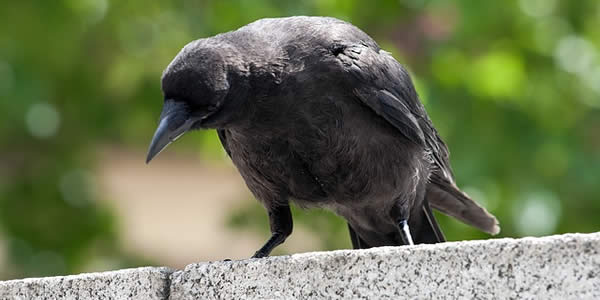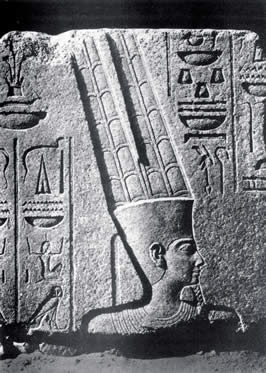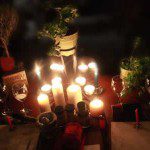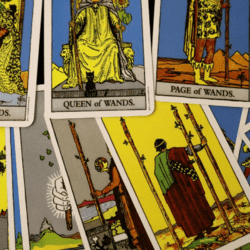One of the other cars in the household has the Leslie Fish album “Avalon is Risen” in its CD drive, and has for years; on the occasions I use that vehicle, I wind up listening to it. Leslie Fish is a filk music artist, and a fair few of her songs have pagan content; Avalon is Risen is a collection specifically of pagan music.
One of the songs on the album is “Wanderer” (lyrics here), the refrain to which is:
Always be kind to travelers
Wandering near or far
Always be kind to travelers
You don’t know who they are….

The one-eyed old man in the song (followed by a pair of crows) is not exactly difficult to identify, of course. But a lot of mythologies have this idea: the gods go about in human guise, and one must be careful, and one ought to be generous, because there’s no knowing who that stranger might be.
One of the times I’d been out in that car, my father was visiting, and I came back in humming some of the songs, and decided I’d play a few for him. And, as we tend to do, we got to discussing them, and one of the ones we discussed was “Wanderer.” He pointed out that the sociopolitical environment had changed: that the idea that one has a social obligation to care for the stranger like that depended on a world in which refuges were spaced widely with lawless space between, in which turning someone aside could be a death sentence, condemning them to starvation, or death by exposure, or attack by brigands. He wasn’t sure of the relevance now.
And, there are so many people now. A stranger is no longer notable in the world; the world is brim-full of strangers, most of whom are doing just fine, are just on their way to somewhere that isn’t here. The world is both larger and smaller than it used to be: so full of so many people that one can’t really perceive them all, individually, and smaller, because those strangers aren’t passing between close-knit communities, but isolated households. It’s possible to barely know one’s neighbors, after living in close proximity for years, in ways that would be inconceivable to the ancestors who had customs about taking in strangers.
And, I spent a long time chewing on that. I couldn’t shake the feeling that the idea of that sort of web of hospitality being made obsolete by the changes in the world didn’t sit right. I likewise was uncomfortable with the idea that we could dismiss the possibility that the gods might embody themselves in the stranger and explore the world.
And then I realized the thing I was missing: that there were, certainly, people for whom there were long miles between possible shelters, who knew that hospitality was what would keep them from starvation, who were vulnerable to brigandry if not given shelter.
I realized that the gods walked among the homeless. The roads between hearthfires are not the empty places they once were: they are the same streets that the housed walk.
(And from there it’s a small step to look at who winds up homeless, and why. And, to wonder how often the gods walk there, too, seeing who remembers the old warnings about showing hospitality. How many gods these days are showing up with queer theophanies?)
It’s not often that I can point at something and say, “That, that there, that changed something for me.” But I had that niggling sense that there was space where the gods walked like they always have, in a changed world – a world simultaneously more peopled and more anonymous and isolated than it used to be – and once I had the notion I had to figure out what I was missing.
The weather’s turning towards the cold, now. These are increasingly pressing concerns as the summer fades into cold and damp, and soon the winter winds will start to come.
And, this is the season for Opet.
Opet is an Egyptian state festival; it is a festival for Amun and his consort Mut, and their relationship with the king. This is a tricky thing to translate into the modern day, there not being a divinely appointed state religion to legitimize, but I choose to draw on the ancient biographies of rulers from their tomb walls and see how they justified their reigns, how they said they showed that they were doing it right.

There are a lot of these tomb inscriptions, but an excellent summation of their content can be found in the inscription of Nefer-seshem-re, called Sheshi, from the Sixth Dynasty:
I have come from my town;
I have descended from my nome;
I have done justice for its lord;
I have satisfied him with what he loves.
I spoke truly; I did right;
I spoke fairly; I repeated fairly;
I seized the right moment,
so as to stand well with people.
I judged between two so as to content them;
I rescued the weak from one stronger than he
as much as was in my power.
I gave bread to the hungry, clothes [to the naked].
I brought the boatless to land.
I buried him who had no son;
I made a boat for him who lacked one.
I respected my father; I pleased my mother;
I raised their children.
So says he whose nickname is Sheshi.
These are the values that a ruler wishes to exemplify, the presence that he is attempting to validate with the Opet festival.
A few years ago, I started a Kiva team called the Emboatening Crew, and every Opet we go out and we find someone who lacks a boat, and we chip in to make a boat happen. Or some other thing that is in keeping with that ethos of governorship, the state that Opet itself is trying to establish. (It’s not just Kemetics in the crew. We had an influx of Celtic-influenced people who preferred to engage in Embovining. We have also done some Emgoatening, and a variety of other things. Not always organised, but it’s there, and you’re welcome to join. For Opet, or for whatever suits best. We’re under religious groups.)
This year, also, I intend to make a donation to a group focused on homelessness in my local area.
Always be kind to travelers.
You don’t know who they are.

Patheos Pagan on Facebook.

the Agora on Facebook
Hills of the Horizon is published monthly on the 29th here on the Agora. You can subscribe by RSS or via e-mail.
Please use the links to the right to keep on top of activities here on the Agora as well as across the entire Patheos Pagan channel.

















